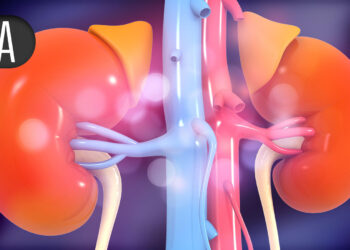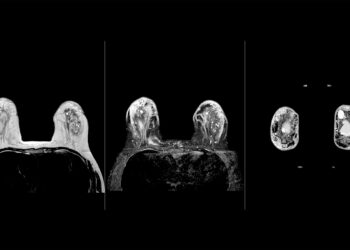Researchers from Queen Mary University of London (QMUL) found that 9% of all adverse drug reactions (ADRs) reported to the Yellow Card database are associated with medications where genetic factors affect risk. This interaction, known as pharmacogenomics, plays an important role in drug metabolism and response.
Among these pharmacogenomic ADRs, 75% were linked to just three genes: CYP2C19, CYP2D6, and SLCO1B1. These genes influence how drugs are processed or excreted by the body.
Clinical trials have shown that genetic testing can guide prescribing pre-emptively, such as by selecting a drug or adjusting the dose, avoiding ADRs and improving patient outcomes, the researchers said.
Genetic Variants Affect Most People
Population studies have shown that 99.5% of individuals carry genetic variants that can lead to an atypical drug response. The pre-emptive pharmacogenomic testing for preventing ADRs (PREPARE) study, conducted across Europe, found that implementation of a pharmacogenomic test panel could reduce ADRs by 30%.
However, the overall impact of pharmacogenomic-associated drugs on the total number of reported ADRs remained unclear. To investigate this, researchers analysed Yellow Card reports to the Medicines and Healthcare products Regulatory Agency from 1963 to 2024.
Their study, published in PLOS Medicine, examined more than 1.3 million ADR reports linked to 2499 substances, among which 115,789 ADRs (9%) involved medications where pharmacogenomic guidance could modify risk. Of these, 87,339 (75%) were due to medicines that interact with only three pharmacokinetic pharmacogenes: CYP2C19, CYP2D6, and SLCO1B1.

Lead researcher Dr Emma Magavern, National Institute for Health and Care Research (NIHR) clinical academic lecturer at QMUL, explained to Medscape News UK that because Yellow Card reports do not contain genetic data, “we cannot say from this data what genetic variants the patients who experienced the ADR may have had.”
Instead, the researchers assessed ADR prevalence for “drugs where we know we can reduce ADRs when we personalise prescribing based on genetic information.” From this they aimed to assess the scale of preventable ADRs.
Widespread Testing Needed
Magavern co-authored a 2022 report on pharmacogenomics, which led experts to call for broader genetic testing in the NHS. However, “testing rollout in the NHS has so far been limited to individual gene-drug pairs,” Magavern said. This has included:
“The call for more broad access to personalised testing for the safety and effectiveness of common medicines remains,” Magavern said.
In a study she led of a nationally representative survey of public attitudes to pharmacogenomics, published last month in the journal QJM, 59% of the 2719 respondents reported either no benefit (45%) or a side effect (46%), or both, from a medication. While most were unaware of the involvement of DNA in predicting risk, when they were informed, 85% thought that the NHS should offer personalised prescribing to people with multimorbidity who take multiple medications, and 58% thought it should be offered to everyone.
Psychiatric and Cardiovascular Drugs Most Affected
Together with the current study, these results support calls for wider implementation of pharmacogenomic testing, Magavern said. The Yellow Card study also showed that 54,846 (47%) of all the pharmacogenomic mitigable ADRs identified were attributed to psychiatric medications, followed by 28,279 (24%) attributed to cardiovascular medications.
Given limited resources, she suggested piloting genetic testing for these drug classes and targeting the three genes linked to 75% of preventable ADRs.
Expert Perspectives on Genetic Testing
Professor Sir Munir Pirmohamed, David Weatherall chair of medicine at the University of Liverpool, called the study “an interesting analysis.” He noted that psychiatric and cardiovascular drugs are overrepresented due to high prescribing rates.

However, he contrasted the 9% rate of actionable drug-gene interactions with the 22% found in the Pre-emptive Pharmacogenomic Testing for Preventing Adverse Drug Reactions (PREPARE) study, for which he was one of the investigators.
The difference can largely be explained by the more selective nature of reporting in the Yellow Card system, he said. It has significant under-reporting, and therefore “huge potential for bias.”
In PREPARE, “we were able to show that ADRs were reduced by 30% by using a pharmacogenetic panel which evaluated 12 genes (incorporating 50% variants)”, Pirmohamed added. Although the authors of the current paper highlighted that a panel of only three pharmacogenes could potentially mitigate three in four pharmacogenetic modifiable ADRs, “it would not be sensible to limit panel testing in pharmacogenetics to these three genes”, he said.
Pirmohamed noted that adding more gene variants onto a panel would not increase costs in a linear fashion. “The beauty of pharmacogenetic testing is that it only needs to be done once if the data can be appropriately stored in electronic patient records,” he said. “Limiting to just 3 pharmacogenes would be an opportunity lost.”
Magavern disclosed funding by Barts Charity and an NIHR clinical lectureship. Pirmohamed disclosed partnership funding, paid to the University of Liverpool.
Dr Sheena Meredith is an established medical writer, editor, and consultant in healthcare communications, with extensive experience writing for medical professionals and the general public. She is qualified in medicine and in law and medical ethics.
Source link : https://www.medscape.com/viewarticle/gene-tests-could-prevent-avoidable-adverse-drug-reactions-2025a10007jb?src=rss
Author :
Publish date : 2025-03-28 16:11:00
Copyright for syndicated content belongs to the linked Source.














